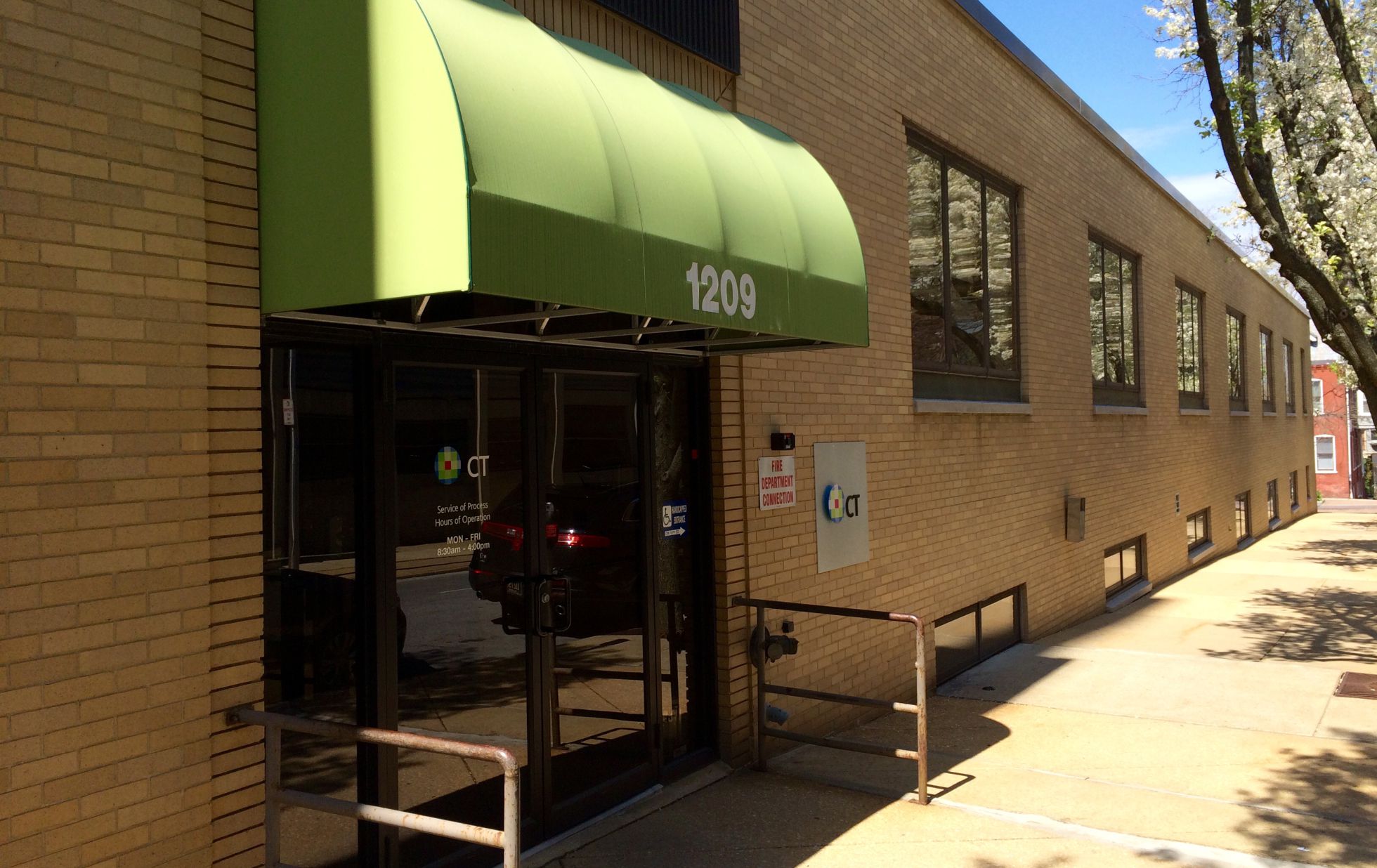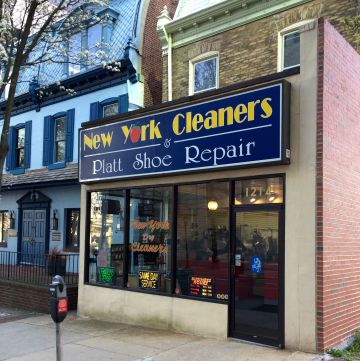Delaware, a tax shelter 170 kilometers from Washington
Wilmington 9 ABR 2016 - 2:01 ESTThe State of Delaware, with more companies than inhabitants exempts tax payments to subsidiaries. The US government and organizations will demand greater transparency.
(This article is translated. The date proceeds the latest US Presidential Elections.)
 |
| CT Corporation building in Wilmington, is the official headquarters of almost 300,000 companies J.FAUS |
They are invisible neighbors.
In buildings around the dry cleaners, including lack luster and local streets empty in the center of the main city of Delaware, tax engineering that allows Delaware to be a magnet business it is managed.
Two thirds of the 500 largest US companies have registered in this small state subsidiaries to avoid paying taxes. Most have no physical presence in Delaware. They simply locate in the postal address of an intermediary.
"It has been so in the 30 years I've been here," says Cha, South Korea 57. Its customers are hundreds of lawyers and financial advisors in the city. One block from the dry cleaner, is the headquarters of CT Corporation, the largest intermediary of the state. It is a brick building with two floors that goes unnoticed. The only thing striking are the numerous security cameras outside. Nearly 300,000 companies have in that building their fiscal headquarters. There is no trace of them. A CT spokesman declined to comment.
CT acts registered agent, the intermediary who by law must have corporations who want to become Delaware. The State is advertised as "corporate capital of the world" since 1899 and offers a favorable legal environment. In a few hours you can create , also at a distance a company in exchange for a small fee to the state and the agent. There are few requirements and can keep secret the identity of the owner. Only a court order, in extreme cases, can uncover.
Opacity attracts investors and can win secrecy in good faith, but also opens the door to crime. In recent years, there have been cases of money laundering, arms trade or public fraud.

From a company in Delaware can be another in a tax haven like the Cayman Islands, with which actually operates. That Intricate difficult to know who the real owner, facilitating for example concealment of assets or money laundering from illegal activities.
Delaware -a 170 kilometers north of Washington- more companies (1.1 million) than people (935,600). In recent years, the ratio has increased and the legal framework has hardly changed, despite international has grown and the Obama administration pressure against tax evasion. The pressure has been rekindled in recent days after the leak of dozens of personalities who were clients of the Panamanian firm Mossack Fonseca , with a branch in Las Vegas (Nevada) - to dodge the treasury.
Delaware -State by Vice President Joe Biden was a senator for 36 years resembling countries like Panama at ease to create opaque to save taxes societies. But the first state to ratify the Constitution is not entirely a tax haven.Sheldon Pollack, professor of law at the University of Delaware, describes it as a "tax haven country" but not international (category in which, according to the European Commission , are 30 countries or territories such as Andorra, Bahamas, Monaco and Panama).
For example, if any company operating in the US established a subsidiary in Delaware to manage some of its intangible assets such as intellectual property, you can legally redirect their income to the subsidiary in order to stop paying taxes (each state can set its rates tax). But must continue to pay a federal tax of up to 35%, in force throughout the country. In parallel, any company without subsidiary does pay state taxes in Delaware.
WHY ARE THERE FEW AMERICANS IN THE ROLES OF PANAMA?
One of the surprises of the massive leak of so- called papers Panama from the law firm Mossack Fonseca is a shortage of US citizens when it is estimated that each year about 150,000 million dollars in the US should pay taxes evaded.
In the leaks, we have identified 211 people with postal addresses in the US. Apart from the possibility of the figure to rise for new revelations, one explanation is the existing facilities in the US, with Delaware to head to form front companies in which we must not reveal the owner. US also refuses to share information with other countries on their banking customers.
Nevada, Wyoming and South Dakota also offer low taxation and opacity, but Delaware is the one that attracts companies.
US leads the crusade against tax evasion, but it comes out badly in the assessments. It ranks third, behind Switzerland and Hong Kong, in the ranking of 2015 financial secrecy of the non-profit organization Tax Justice Network. It represents a fifth of the global market for companies offshore -constituidas originario- outside the country and Delaware is one of the causes. In 2009, the first power led the ranking.
The Institute for Fiscal and Economic Policy accused last December to Delaware to be responsible for the loss of billions of revenues from other States and a lack of transparency that make it a "magnet to create anonymous shell companies". Transparency International, an organization against corruption, defined in February to Delaware as a "haven for transnational crimes" by providing a "corporate secrecy end".
Charles McLeod, government spokesman Delaware, the State argues that "operates well within the margins of the law" and stressed that in recent years has prompted legal tinkering to prevent fraudulent activities. But it wields that the only way to end the opacity in criminal cases is a law proposed by the Obama administration and Congress, including lawmakers from Delaware, has slowed. The Government of Delaware argues that the revelations of Panama emphasize the need to promote that law.
The Treasury Department is preparing a proposal aimed at regulating foreign owners of companies, says a spokesman, declining to assess the fiscal framework Delaware.
Internet advertisements offering abound quickly establish a company in Delaware. That feeling of great bazaar is absent from the streets of Wilmington, of 71,000. There are no signs indicating the tax offices of multinationals or their intermediaries. There are few people in the streets. Advisers and lawyers move by car. Passers seem to ignore the fiscal framework that is brewing around him.Cha, the owner of the dry cleaners, knows it well. "It is for this that there Wilmington. If no city would be half of what it is, "he says.
US MULTINATIONALS AND SPANISH
- In 2015, there were 1,181,000 companies in Delaware, with a population of 935,600 inhabitants. In 2014, there were 1,114,000 societies, representing an increase of 26% over 2008.
- Of the companies registered in 2015, 66% were from Fortune 500 companies index 86% of the companies that went public in 2015 established its corporate headquarters in Delaware.
- Subsidiaries of companies do not pay taxes in Delaware, but an annual rate that nurtures the state coffers. Fee income totaled $ 927 million in 2014, representing 26% of the state budget and an increase of 5% over the previous year.
- In 2014, there were more than 19,000 Delaware companies subsidiaries of Fortune 500 companies index in Nevada, Wyoming and South Dakota combined figure was less than 1,000
- Some of the tenants of Delaware prosecutors are American Airlines, Apple, Amazon, Coca-Cola, Facebook, Ford, General Electric, Google, JP Morgan, Twitter, Visa and Walmart, according to data provided by the State.
- There are also foreign multinationals. Territories with low or no taxation, Delaware is the first destination of the big Spanish companies, according to a report by Oxfam Intermón 2015 with data from 2013. That year, there were 352 registered subsidiaries of companies listed on the Ibex 35, with Banco Santander, Iberdrola and ACS to the head.
No comments:
Post a Comment